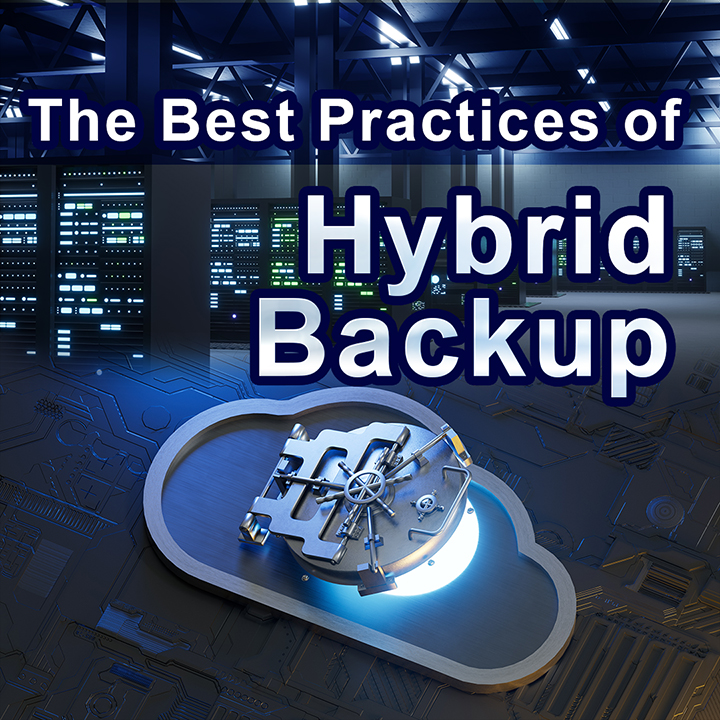In today's fast-paced and data-driven world, it's more important than ever to ensure your data is secure and easily accessible. One increasingly popular way to do this is through hybrid backup, which combines local and cloud backup benefits. In this blog post, we'll discuss three best practices of hybrid backup: the 3-2-1 backup strategy, regular testing, and encryption.
The 3-2-1 Backup Strategy
The 3-2-1 backup strategy is an effective approach commonly used in hybrid backup. It involves keeping three copies of your data on two different types of storage, one off-site. This provides a robust safeguard against data loss as it mitigates the risks associated with any single point of failure. For instance, if your local system fails, you still have the off-site and cloud backups. You have local and off-site backups if the cloud provider experiences an issue. CloudBacko provides multi-destination backup, which supports anywhere-to-anywhere backup. MSP and SMB can easily manage 3-2-1 backup sets on the CloudBacko web console.
Regular Testing
Another best practice of hybrid backup is regular testing. Setting up your backups and hoping they work correctly is not enough. Regularly testing your backups ensures that they're functioning as expected and that your data can be recovered quickly and efficiently in the event of a failure. It also allows you to identify and rectify any issues or inefficiencies in your backup process, ensuring your backups are as effective and reliable as possible. Recently, CloudBacko rolled out the restore drill feature, facilitating CloudBacko users to run regular recovery processes. Data can be recovered in data disasters. No extra expense is required.
Data encryption
The final best practice we'll discuss is encryption. Encrypting your backups adds a layer of security, protecting your data from unauthorized access. This is particularly important for off-site and cloud backups, as data transmitted over the internet is vulnerable to interception. High-level encryption makes it virtually impossible for unauthorized individuals to access your data, ensuring your backups are reliable and secure. CloudBacko backup is using AES 256-bit encryption with two-factor authentication access control. Unauthorized access is not allowed.
Hybrid backup combines the benefits of local and cloud backup, providing a robust solution for data protection. By following the 3-2-1 backup strategy, regularly testing your backups, and encrypting your data, you can ensure your hybrid backups are effective, reliable, and secure. In an era where data is one of the most valuable assets, these best practices can provide peace of mind and safeguard against the devastating effects of data loss. Get started hybrid backup with CloudBacko.
